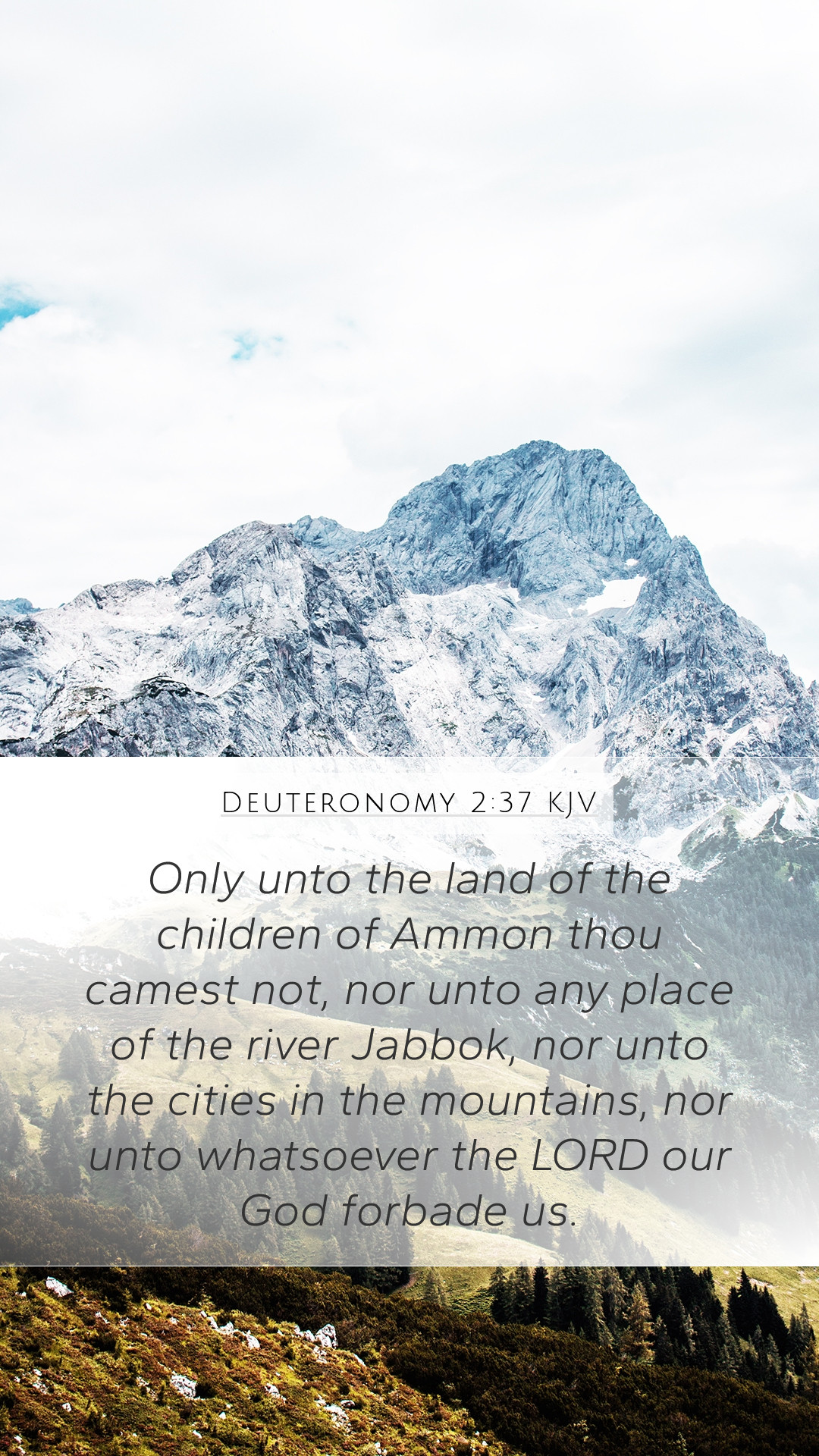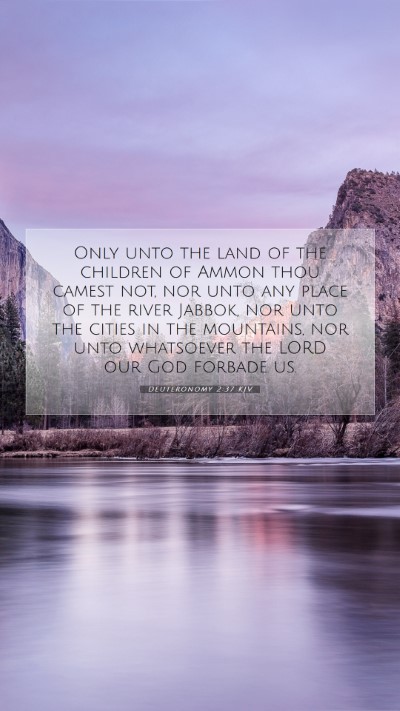Deuteronomy 2:37 - Meaning and Commentary
Verse: "But unto the land of the children of Ammon thou camest not, nor unto any place of the river Jabbok, nor unto the cities in the mountain, nor unto whatsoever the LORD our God forbad us." (Deuteronomy 2:37, KJV)
Overview
This verse is a part of Moses' recounting of the journey of the Israelites as they approached the Promised Land. It serves as a reminder of the boundaries set by God regarding the territories that the Israelites were to avoid.
Commentary Insights
-
Moses' Warning:
According to Matthew Henry's Commentary, Moses emphasizes the importance of obedience to God's commands. The specific mention of the children of Ammon highlights the restrictions placed upon the Israelites, which were intended to protect them from intermingling with pagan nations and practices.
-
Divine Prohibition:
Albert Barnes explains that the prohibition against entering certain regions signifies God's sovereignty over land and peoples. It was vital for Israel to recognize the boundaries set by divine authority to prevent spiritual and cultural dilution.
-
Spiritual Implication:
Adam Clarke notes that this instruction reflects God's desire for holiness among His people. The avoidance of certain territories symbolizes a broader spiritual truth: believers must be diligent in avoiding places and influences that could lead them astray from God's paths.
-
User Context:
Understanding Deuteronomy 2:37 can be vital for anyone engaged in Bible study groups or online Bible study. This verse illustrates the significance of recognizing and adhering to divine guidelines in personal and communal faith journeys.
Spiritual Lessons
The verse invites readers to reflect on a few key themes:
- Obedience: Faithfulness to God's instructions is crucial. Adhering to His boundaries ensures a proper relationship with Him.
- Discernment: Believers should exercise discernment in choosing influences and relationships that align with their faith.
- Faith Journey: The path to spiritual fulfillment requires awareness of what to avoid, much like the Israelites needed to avoid the lands God forbade.
Cross References
To better understand Deuteronomy 2:37, consider these related scriptures:
- Deuteronomy 2:19: For insights into the boundaries with the descendants of Lot.
- Deuteronomy 2:9: God's command regarding the avoidance of Edom.
- Exodus 34:12: A warning against making covenants with the inhabitants of the land.
Application of the Verse
Applying the insights from Deuteronomy 2:37 to daily life can help individuals navigate challenges and questions about faith. Here are a few suggestions:
- Identify areas in your life where divine guidance may be leading you to avoid certain influences or practices.
- Engage in Bible study lessons that discuss the names and territories associated with biblical figures.
- Explore Bible study resources that focus on the historical context of the Israelites' journey.
Conclusion
Deuteronomy 2:37 serves as a poignant reminder of God's guiding principles in our lives. Understanding scripture, especially through a lens of God's sovereignty, can enrich one’s Bible study insights and enhance personal faith journeys. Whether you are looking for meaning of Bible verses or specific explanations, this passage underscores the significance of obedience to divine instructions.


